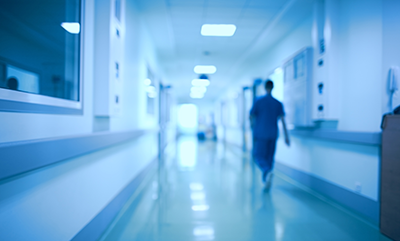Black and Poor New Yorkers Largely Shut Out of Major Academic Hospitals.
 Few black New Yorkers receive care in New York City’s elite private academic medical centers (AMCs), in contrast to the situation in Boston, according to a new study co-authored by School of Public Health and Boston Medical Center researchers.
Few black New Yorkers receive care in New York City’s elite private academic medical centers (AMCs), in contrast to the situation in Boston, according to a new study co-authored by School of Public Health and Boston Medical Center researchers.
The study, published in the International Journal of Health Services, also found that uninsured and Medicaid patients are markedly underrepresented at New York’s major academic hospitals. Patients in Boston’s hospitals are much less segregated by race or health insurance status, the study says.
The study analyzed official data on all adults discharged from hospitals in New York City (NYC) in 2009 and 2014, and in Boston in 2009. It found that in NYC in 2014, blacks accounted for only 18 percent of AMC patients, but nearly one-third of patients in the city’s other hospitals. Similarly, only 22 percent of New York City’s AMC patients had Medicaid, and only 1 percent were uninsured, versus corresponding figures of 42 percent and 4 percent at the city’s non-AMC hospitals.
The study was conducted by researchers at the City University of New York at Hunter College, Boston Medical Center, SPH, and Harvard Medical School.
Other findings included:
- Even after controlling for their lower-quality insurance, black New Yorkers were still only half as likely as whites to get their care in AMCs.
- The Index of Dissimilarity (a measure of system-wide segregation) for black patients was 0.52 for NYC hospitals, indicating moderately high segregation. That figure means that 52 percent of black patients in NYC would have to switch to hospitals that now serve predominantly white patients to achieve the full integration of the system. In Boston’s system, the Index of Dissimilarity figure was 0.33.
- Compared to privately insured patients, Medicaid patients were three times less likely, and uninsured patients five times less likely, to be treated at New York City’s major academic hospitals.
- Conversely, privately insured New Yorkers were more than twice as likely to get care at AMCs compared to other NYC hospitals. In Boston, Medicaid enrollees and uninsured patients were just as likely to be treated at an AMC as at a non-AMC hospital.
“Academic medical centers play a unique role,” the authors said. “They provide specialized expertise across a range of clinical services. Many AMCs are ranked among the top hospitals in the country, and patients treated at AMCs are more likely than other patients to receive treatments using the latest technologies and care adhering to current clinical guidelines.”
They noted that while non-AMC hospitals can provide excellent care for many illnesses, the specialized care available at AMCs is especially important for patients with complex and rare conditions.
Senior author Karen Lasser, an internist at Boston Medical Center and associate professor of medicine and public health at BU, said the study “highlights the issues that academic health centers need to address in order to provide the highest level of care to all patients, regardless of race, ethnicity, or health insurance coverage.”
Lead author Roosa Tikkanen, currently a policy analyst at the University of Massachusetts Medical School, noted that New York’s academic medical centers “receive millions of dollars from the state’s ‘Indigent Care Pool,’ but many of them provide little care to uninsured or Medicaid patients.”
All of the AMCs in Boston and NYC are nonprofit hospitals and enjoy tax exemptions worth tens of millions of dollars, the authors said.
Co-authors include: Meng-Yun Lin, a PhD candidate at SPH and a research data analyst at Boston Medical Center; Nancy Kressin, professor at MED; and Amresh Hanchate, associate professor at MED.